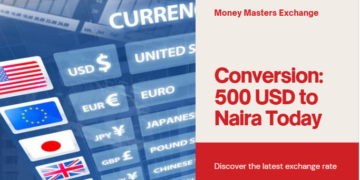The Black Market Dollar To Naira Exchange Rate Today 11th March 2023 has emerged.
How is the Dollar to Naira Exchange rate at the black market also known as the parallel market (Aboki fx)? See the black market Dollar to Naira exchange rate for 11th March, below. You can swap your dollar for Naira at these rates.
How much is a dollar to naira today in the black market?
Dollar to naira exchange rate today black market (Aboki dollar rate):
The exchange rate for a dollar to naira at Lagos Parallel Market (Black Market) players buy a dollar for N750 and sell at N755 on Friday 10th March 2023, according to sources at Bureau De Change (BDC).
Please note that the Central Bank of Nigeria (CBN) does not recognize the parallel market (black market), as it has directed individuals who want to engage in Forex to approach their respective banks.
Dollar to Naira Black Market Rate Today
| Dollar to Naira (USD to NGN) | Black Market Exchange Rate Today |
| Buying Rate | N750 |
| Selling Rate | N755 |
Please note that the rates you buy or sell forex may be different from what is captured in this article because prices vary.
Open Banking: CBN issues new guidelines that will change Nigerian banking forever
The Central Bank of Nigeria (CBN) has announced the issuance of operational guidelines for Open Banking in the country.
The new guidelines will enable the sharing of customer-permissioned data between banks and third-party firms, with the aim of creating customer-focused products and services, improving efficiency, and promoting competition in the financial sector.
A statement released on Monday, and signed by Musa I. Jimoh, Director, Payments System Management Department of the CBN, stated that the adoption of Open Banking will deepen the financial system in Nigeria, and further its mandate of ensuring stability in the sector. The guidelines are expected to enhance access to financial services in the country.
How will it work?
Open Banking enables the sharing of customer-permissioned data between banks and third-party firms. This system allows banks to securely share their customer data with third-party companies, such as fintech and other financial service providers, with the consent of their customers.
This sharing of data is done through Application Programming Interfaces (APIs), which act as a bridge between the bank’s systems and those of the third-party firms.
Once a customer gives their consent for their data to be shared, the third-party firm can access their data through the bank’s APIs. This data includes information about the customer’s transactions, account balances, and other relevant information. The third-party firm can then use this data to develop innovative products and services that are tailored to the customer’s needs















